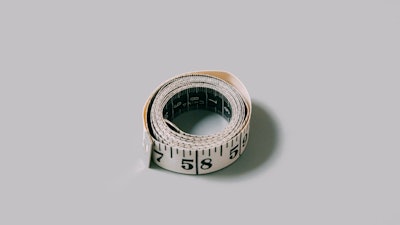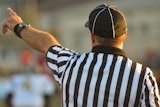
A Clemson University researcher studying the relationship between body image, eating behaviors and the drive for muscularity among student-athletes found that students’ eating habits were significantly influenced by weight monitoring practices. 
According to a news release Monday, Lauren Stephens, Ph.D., a lecturer in the Department of Parks, Recreation and Tourism Management, studied a sampling of student athletes from a Southeastern university through a two-part study of eating-related psychopathologies.
When analyzed on its own, survey data showed that students were eating normally, but during interviews, rigid eating habits and body image concerns were revealed.
 Lauren Stephens
Lauren Stephens
Clemson said student athletes from 11 of the NCAA-sanctioned sports participated in surveys and one-on-one interviews to determine their perceptions of body image, drive for muscularity and eating behaviors.
Stephens said the multifaceted nature of the study, which included the interview portion, provided important context for quantitative survey data.
“Student athletes admitted to labeling items as ‘good’ or ‘bad’ and overcompensating with additional exercise or food limitations when they had eaten something bad,” Stephens said in the release. “Interviews revealed students’ eating habits were significantly influenced by weight monitoring practices.”
Even though the athletes usually were not attempting to reach a desired weight to compete – such as that for an official sport weigh in – they were influenced by weight monitoring practices such as body-fat assessments. Athletes said their food selections and the frequency of their eating were often dependent on how soon they would be required to measure their body fat composition.
While athletes’ desire for muscularity was apparent, body image concerns were evident across all represented sports, according to the research. Athletes discussed the disconnect between their own body image and what they considered the ideal athlete body type, and expressed a desire for greater communication, programming and educational materials openly available to them.
Many athletes stated that conversations surrounding body image often took place amongst their peers instead of with coaches, nutritionists or sport psychologists. Self-deprecation was also identified as a coping mechanism, as students would joke about their body image to deflect attention, the release said.
As a former collegiate cross-country athlete herself, the trajectory of Stephens’ research has been influenced by her past experiences. She understands the discipline required to succeed as an athlete at the college level and recognizes the need for open lines of communication surrounding mental and physical health as they pertain to eating-related psychopathologies.
“As a student athlete who struggled with disordered eating, I have a personal connection to this research,” Stephens said. “My experiences have taught me the importance of these conversations, so I took extra care to keep the research authentic and accurate and allow the data to speak for itself.”
Based on the results and her prior work in the field of youth development, Stephens suggests that giving youth a voice and autonomy in their wellness journey is important, the Clemson release said. The research suggests that offering body-fat measurement tools as a resource, not a requirement and facilitating conversations about body image and eating habits in an open environment would improve the overall wellbeing of student athletes.





































